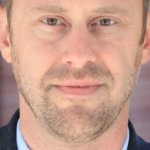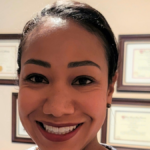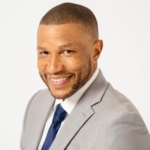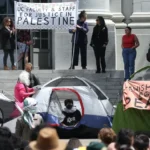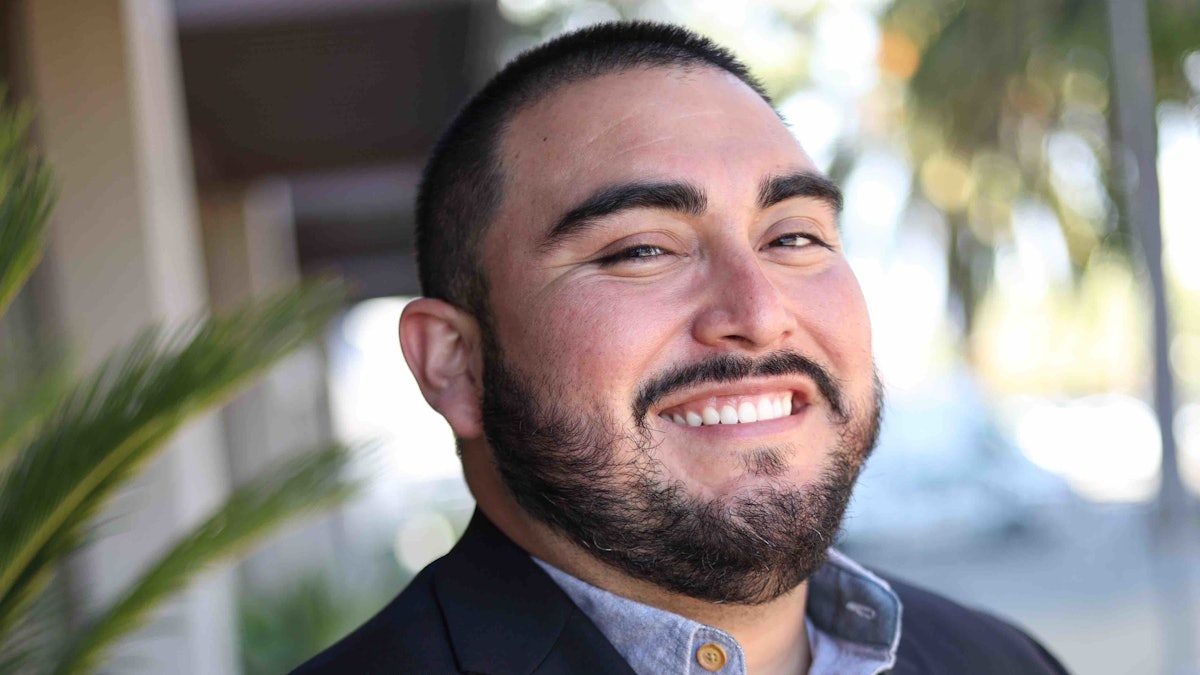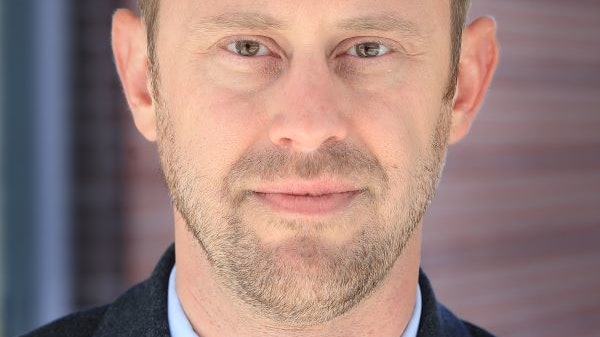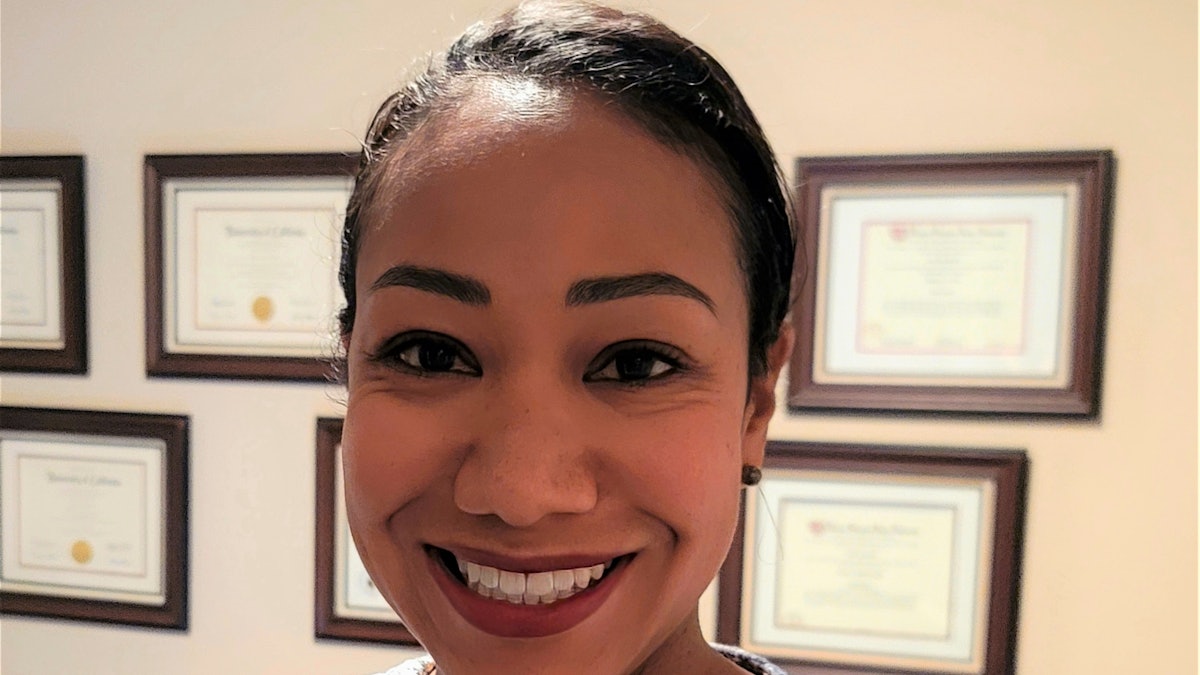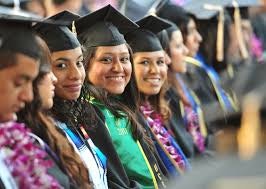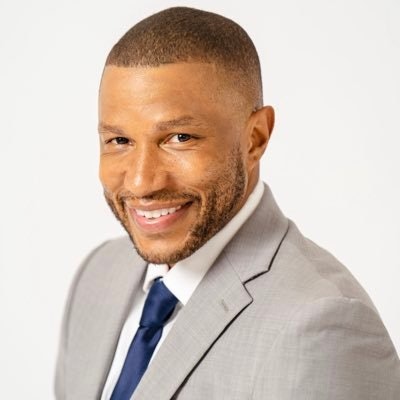Manny Rodriguez laments childhood memories of the discourse surrounding education policies in California, particularly those that negatively affected migrant families like his.
But he remains inspired by the words of his father, who would repeat the motto, “Cada generación tiene la responsabilidad de darle un mejor comienzo a la próxima generación.” Meaning, every generation has a responsibility to give the next generation a better start.
Rodriguez says his Mexican immigrant parents laid the groundwork for his drive and commitment to fight for an education system that equitably supports and uplifts students from diverse backgrounds. And he is doing his part as director of policy and advocacy in California at The Institute for College Access and Success (TICAS), an independent, nonprofit research and policy organization.
 Manny Rodriguez
Manny Rodriguez
“Manny is a leader in higher education policy advocacy,” says Brian Rivas, senior director of policy and government relations at The Education Trust — West. “He combines passion, knowledge, and charisma to persuade policy makers to do the right thing for low-income students. He’s a great asset in California.”
Rodriguez has been with TICAS for about two years and has appreciated the group’s mission alignment with his personal story.
“My path to the nonprofit education equity sector was a fortunate blend of timing and aligning my professional ambitions with my personal mission,” explains Rodriguez. “Initially, I aspired to be a lawyer. But advice from a seasoned attorney redirected my focus during my final undergraduate year.”
The pivot coincided with a friend’s involvement in the Capital Fellows Program in Sacramento, California, where Rodriguez earned an executive fellowship. He was placed at the Business, Consumer Services, and Housing Agency.
“My fellowship experience solidified my passion for public policy creation, implementation, and governance as the space I wanted to pursue for a career,” he says.
Rodriguez’s affinity for the work grew while studying at Sonoma State University, where he earned a bachelor’s degree in criminology and criminal justice studies and a master’s degree in public administration. He served as a pre-admission counselor and tour guide and was a founding peer mentor for the Making Our Space an Inclusive Community, a living-learning residential community that helps low-income and historically underrepresented students transition from high school to college.
“At Sonoma State, I witnessed firsthand how targeted support can influence the educational trajectory of low-income, first-generation, or BIPOC students,” says Rodriguez. “While a lot of this is done on an individual-level by the faculty and staff, policies and procedures can intentionally be set in place to ensure that housing services, student services, campus-involvement, and academic programming is catered to historically underserved students.”
Rodriguez says his lived experiences in college and his belief that strategic policies can significantly impact underserved communities converged on education equity.
“TICAS resonates deeply with me, as financial aid was pivotal in my own college journey,” he says. “Coming from a low-income household, I knew my parents weren’t going to be able to pay for much, if any, of my school, so I had to maximize the financial aid I received in order to attend, stay-in, and graduate.”
The education policy wonk-and-advocate says he works so that more students can have a debt-free, affordable pathway to and through college. He says that work, so far, has been fun.
“I like being an unapologetic advocate on the outside pushing in,” says Rodriguez.
Nonetheless, advocates in California must balance a fine line of promoting support for marginalized groups in ways that do not explicitly target equal opportunity programs or funding that factor in gender, race, or ethnicity identities.
“In a world that is very much not colorblind, we are still bound by that concept when trying to diversify our university staff and leadership, or when we are trying to admit and enroll students of color, or when we are funding our education system,” says Rodriguez.
“Now it’s not all doom and gloom,” he continues. “There are some advancements we’ve made due to unapologetic leaders and decisionmakers who find innovative ways to work around this. But the reality stands that we cannot address racial and gender inequities if we cannot even speak about those identities when crafting solutions.”
Rodriguez says answers to such policy problems exist partly in coalition-building. He says he believes that younger people — taking similar paths to get where previous generations are — deserve to have a helping hand to cultivate more allyship in public policy.
“You’re never going to do it alone,” says Rodriguez. “But together we can make sure that our policies are being crafted in an equitable way and that we are leaving this place in a better place than when we came in.
“As my dad would always remind me: Let’s make sure we are giving the next generation a better start than the one we were given.”
#Advocating #Policy
